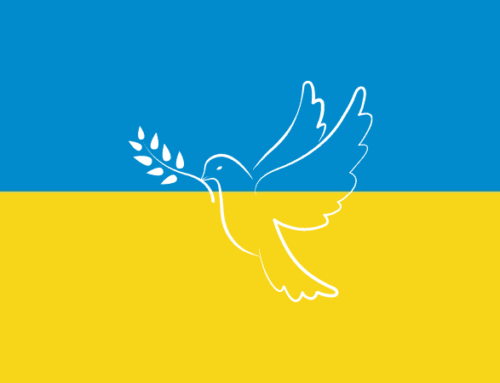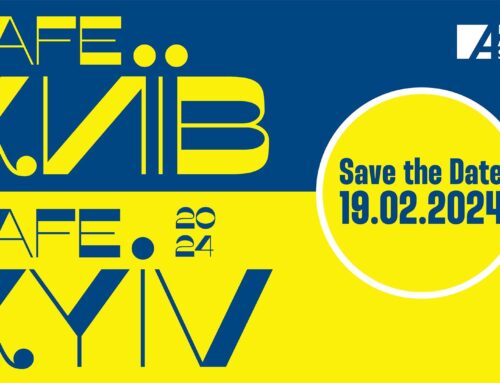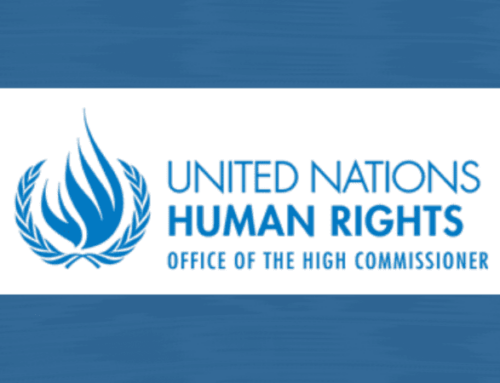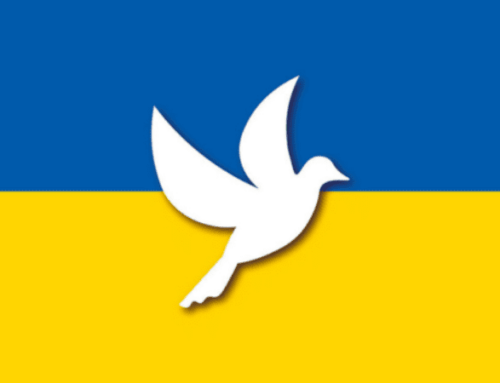Monitoring of the trial of Alena Blokhina and Vitaly Blokhin (court hearings 11.18.2021-11.19.2021)
On November 18 and 19, 2021, in the Veselinovsky District Court of the Nikolaev region, a court hearing was held in the case of Alena Blokhina and Vitaly Blokhin, who are charged with the use of funds obtained from the illegal circulation of narcotic drugs, psychotropic substances, their analogues, precursors, poisonous or potent substances or poisonous or potent medicines in order to continue their illegal circulation (part 2 of article 306 of the Criminal Code of Ukraine), as well as illegal production, manufacture, acquisition, storage, transportation or shipment for the purpose of marketing, as well as illegal sale of narcotic drugs, psychotropic substances or their analogues by an organized group (part 3 of Article 307 of the Criminal Code of Ukraine).
At the beginning of the hearing, Alena Blokhina submitted a petition to conduct a technical and forensic examination of the order for the operational unit to carry out investigative and procedural actions, in which there are visible corrections in the date. In this regard, a emotional argument took place between Alena Blokhina and the presiding judge due to the fact that the court considered this petition unfounded and unmotivated. The presiding judge asked the prosecutor to confirm that the order contains corrections in the date, so as not to conduct an examination, the prosecutor confirmed the presence of corrections in the document. Subsequently, the judge asked Alena Blokhina whether she now insists on an examination, on the condition that both the court and the prosecutor agree with the presence of corrections in the document. Blokhina replied that yes, she insists, since the document may affect the final verdict in her case. The court clarified with the accused what this examination would give, Blokhina replied that with this examination it would be possible to confirm that the prosecutor’s office in this case literally “does something not understandable”. In addition, according to Alena Blokhina, this is not the only document that raises doubts on the part of the defense in terms of the reliable timing of their compilation.
The prosecutors objected to the examination, since the prosecution did not object to the order containing corrections.
The defense, referring to the confirmation of the obvious correction by the prosecutor, expressed the position that there was no need for an examination, but the document itself should be recognized as inadmissible evidence.
The court did not satisfy Alena Blokhina’s petition to conduct a technical and forensic examination and attached the doubtful document to the case file.
In addition, Blokhina filed a petition to declare the protocols of the investigative experiments inadmissible as evidence. The court did not satisfy this motion on the grounds that the issue of admissibility would be considered by the court in the deliberation room during the adoption of the final decision on the case.
Note that although Article 6 of the European Convention on Human Rights guarantees the right to a fair trial, it does not establish rules for the admissibility of evidence as such, since this issue should primarily be regulated by national law (“Schenck v. Switzerland”, paragraphs 45-46; “Heglas Czech Republic”, paragraph 84).
In the context of Article 6 of the Convention, the question that needs to be answered is whether the trial was fair in general, taking into account, among other things, the method of obtaining evidence. (“Khan v. The United Kingdom”, paragraph 34; “PG and J.H. v. The United Kingdom”, paragraph 76; “Allan v. The United Kingdom”, paragraph 42).
In determining whether the proceedings were generally fair, consideration should be given to whether the rights of the defense were respected. It is necessary, in particular, to establish whether the applicant had the opportunity to challenge the authenticity of the evidence and its use. In addition, the quality of the evidence must be considered, including whether the circumstances under which it was obtained could have cast doubt on its reliability or accuracy. (“Bykov v. Russia”, paragraph 90).
The European Court of Human Rights uses “the fruit of the poisoned tree” doctrine in relation to evidence, which is revealed, for example, in the “Gefgen v. Germany” judgment. “The fruit of the poisoned tree” is a legal metaphor introduced by the US Supreme Court to describe evidence obtained using illegally obtained information. It implies that if the source of evidence (“tree”) is inappropriate, then all evidence obtained from it (“fruit”) will be the same.
In Ukraine, the above doctrine has its legal embodiment in Part 1 of Art. 87 of the Criminal Procedure Code of Ukraine. Thus, evidence obtained as a result of a significant violation of human rights and freedoms guaranteed by the Constitution and laws of Ukraine, international treaties, consent to be bound by which was provided by the Parliament, as well as any other evidence obtained with a significant violation of human rights and freedoms are inadmissible.
It should be noted that the Cassation Criminal Court within the Supreme Court applied the doctrine of “the fruits of a poisonous tree” in cases No. 488/2433/15, No. 676/3183/15-k.
The ISHR experts believe that the national courts should take into account the doctrine of “the fruit of the poisoned tree” and be guided, among other things, by it when deciding on the admissibility of certain evidence, since the charge and, moreover, the conviction against a person cannot be based on doubtful evidence. Moreover, any doubt must be interpreted in favor of the accused (In dubio pro reo).
The court moved on to the stage of questioning witnesses. On November 18, 2021, two witnesses were questioned.
The first witness was not an eyewitness to the events and did not personally know the accused; he was an attesting witness during the search at the Blokhin’s house.
According to the witness, law enforcement officers often call and invite him to “help” during investigative actions, moreover, they take him from home in their car.
In fact, the witness did not remember anything about the search. When asked by the defense whether the witness had seen drugs, the latter replied that he did not know and did not remember.
In addition, the witness confirmed that Alena Blokhina demanded a lawyer for herself during the search. As noted in the previous report, during the search, the right of the accused to legal defense was violated, since the law enforcement agencies refused to provide them with a lawyer and did not give them the opportunity to involve him on their own.
The ECtHR has repeatedly noted in its case-law that any person facing a criminal charge must be protected under Article 6 paragraph 3 (c) at any stage of the proceedings (“Imbrioscia v. Switzerland”, paragraph 37). Thus, protection may be needed even before the case is brought to trial, since the fairness of the trial may be violated even before the trial of the case in court begins (“Ocalan v. Turkey”, paragraph 131; “Magi v. The United Kingdom”, paragraph 41).
The ISHR experts emphasize that, according to the national criminal procedure legislation and the established practice of the Supreme Court, if the right of the accused/suspect to defense during a search is violated, the evidence obtained during such a search is inadmissible and cannot be taken into account by the court when making a final decision.
At the same session, a second witness was questioned, who does not know the accused. Only knows them as fellow villagers. She was not an eyewitness to any offenses imputed to Blokhins.
On 19 November 2021, three more witnesses were questioned. The first witness did not know the accused; she was not an eyewitness to the events but was present as an attesting witness during the search. During the search, she stood together with Alena Blokhina and did not walk around the rooms with the law enforcement officers. What was remarkable in her answers was that she did not personally see what was confiscated but knows what was confiscated.
The witness informed that Alena Blokhina felt sick during the search and asked to call an ambulance, which the law enforcement officers refused to provide.
The second witness was also not familiar with the accused; in fact, he did not say anything regarding accusations. Just like the previous witnesses, he was not an eyewitness to the crimes imputed to Blokhins, but was present as an attesting witness during the search. According to the witness, drugs were not seized in his presence. He could not say anything more.
The third witness could not tell anything about the facts of the case, since he does not remember anything. The witness gave testimony at the stage of the pre-trial investigation, but, in his words, he cannot remember them. In this regard, the prosecutor filed a motion to join the record of the interrogation of the witness to the case file. The defense side objected, since this violates the principle of the immediacy of judicial review.
The court consulted on the spot and decided that it was necessary to read out the protocol of the interrogation of the witness so that he remembered his testimony and confirmed it.
So, in the protocol there were statements that the witness used opium and bought it from the accused Nedodayevs, who bought drugs from the Blokhins. The only confirmation of the witness’s words that the drugs were bought from the Blokhins is that he saw the Nedodaevs walking towards the Blokhins’ house. The court attached this interrogation record to the case file.
The ISHR experts are wary of the court’s decision to allow a witness to listen to his testimony, which he does not remember, in order to confirm it. Moreover, to a witness who, in his own words, suffered from drug addiction.
In the opinion of the ISHR experts, these testimonies of a witness cannot be regarded as admissible, since according to the principle of the immediacy of judicial examination, the judges involved in the consideration of the case must independently and personally perceive all the evidence collected. Moreover, in the protocol of the interrogation of the witness, the testimony was written not by him personally, but by a law enforcement officer, the witness only signed them.
The position of the ECtHR regarding the questioning of witnesses is unambiguous. Thus, if the witness was not questioned at an earlier stage of the trial, the use of written testimony instead of direct testimony in court should be a last resort (“Al-Kawaya and Taheri v. The United Kingdom”, paragraph 125).
The ISHR experts are extremely concerned about the fairness of this trial, since after observation of three sessions, the ISHR observers have a strong impression that there is no admissible and proper evidence in this case.
IAC ISHR will continue to monitor this trial to clarify all the details.








Leave A Comment